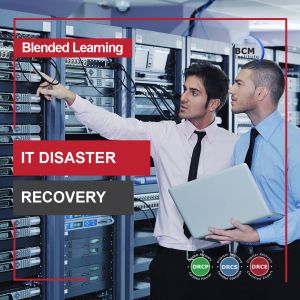Uninterruptible Power Supply (UPS): Difference between revisions
Jump to navigation
Jump to search
No edit summary |
(No difference)
|
Latest revision as of 19:00, 30 October 2020
| 1. Uninterrupted Power Supply or UPS is a device that provides instantaneous power cutover when utility power fails, usually by storing excess capacity in one or more batteries.


| ||||||||
{{#ev:youtube|vIb8yKtukKA|350}}

2. A backup electrical power supply that provides continuous power to critical equipment in the event that commercial power is lost. The UPS (usually a bank of batteries) offers short-term protection against power surges and outages. The UPS usually only allows enough time for vital systems to be correctly powered down.
(Source: Business Continuity Institute - BCI)
(Source: ENISA - the European Network and Information Security Agency. BCM & Resilience Glossary)
